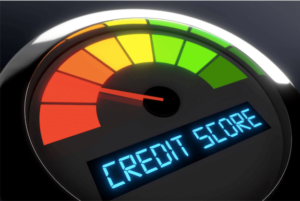In the intricate tapestry of personal and financial lives, the concept of debt plays a central role. For many, the term “debt” carries both financial implications and emotional weight. In this comprehensive guide, Finger Finance unravels the complexities of debt, examining its various forms, the role it plays in individual and societal contexts, and the strategies for managing it effectively.
What Is Debt?
Debt, in its simplest form, is an obligation or a liability owed by one party, known as the debtor, to another party, known as the creditor. This financial arrangement typically involves the borrowing of money with the expectation of repayment, often with interest.
What Are Different Types Of Debt?
Debt comes in various forms, each serving distinct purposes. Common types of debt include:
| Secured Debt: | Backed by collateral (e.g., mortgages or car loans). |
| Unsecured Debt: | Not backed by collateral (e.g., credit cards or medical bills). |
| Consumer Debt: | Incurred for personal, family or household purposes. |
| Business Debt: | Acquired by businesses for operational or expansion purposes. |
| Public Debt: | Incurred by governments to fund public expenditures. |
What Are The Different Dynamics Of Debt?
Interest Rates
One critical aspect of debt is the inclusion of interest rates. Interest is the cost to borrow money and is typically expressed as a percentage of the loan amount. The rate can be fixed or variable, influencing the overall cost of the debt.
Debt Repayment Terms
The terms of debt repayment vary, encompassing factors such as the loan duration, installment amounts and frequency of payments. Longer repayment periods may result in lower monthly payments but potentially higher overall interest costs.
Impact Of Credit Scores
A borrower’s creditworthiness is often assessed through credit scores. These scores, determined by factors like payment history and outstanding debts, play a significant role in a borrower’s ability to secure favorable loan terms.

What Is The Role Of Debt In Individual Finances?
Financial Goals and Investments
Debt can be a tool for achieving financial goals. For example, mortgages enable homeownership, and student loans facilitate education. Additionally, entrepreneurs may leverage debt for business investments.
Challenges of Excessive Debt
While debt can be a strategic resource, excessive or mismanaged debt can lead to financial challenges. High interest consumer debt, for instance, can trap individuals in a cycle of repayments, hindering financial progress.
Credit Building
Responsibly managing debt contributes to building a positive credit history. A good credit history opens doors to favorable interest rates and improved financial opportunities.
What Are Societal Perspectives On Debt?
Economic Stimulus
In the broader economic context, debt plays a role in stimulating economic activity. Governments often incur debt to fund public projects and initiatives, contributing to economic growth.
Debt and Financial Markets
Financial markets are interconnected with debt instruments. Bonds, for instance, represent debt securities traded in financial markets, influencing interest rates and investment strategies.
Impact on Economic Stability
Excessive levels of debt, both at the individual and systemic levels, can impact economic stability. Financial crises, such as the 2008 global financial crisis, underscore the interconnectedness of debt and economic health.
What Are Some Key Strategies For Managing Debt?
| Budgeting: | Creating a comprehensive budget is foundational to effective debt management. Understanding income, expenses, and discretionary spending helps individuals allocate funds for debt repayment. |
| Debt Repayment Plans: | Establishing a structured debt repayment plan is crucial. Methods such as the snowball or avalanche approaches prioritize paying off debts strategically, either starting with the smallest balances or tackling higher-interest debts first. |
| Emergency Funds: | Building an emergency fund acts as a financial safety net, preventing individuals from relying on credit in times of unexpected expenses. This fund provides a buffer against unforeseen challenges. |
| Negotiating Terms: | When facing financial difficulties, proactive communication with creditors can lead to negotiated repayment terms or the exploration of debt relief options. Many creditors are willing to work with individuals facing temporary financial setbacks. |
| Seeking Professional Guidance: | Financial advisors and credit counseling services provide valuable guidance on debt management. These professionals can help individuals create effective strategies, negotiate with creditors, and navigate complex financial situations. |
The Bottom Line
In the intricate dance of personal and financial choices, debt emerges as a multifaceted force with both positive and challenging implications. Understanding the dynamics of debt, its various forms, and the strategies for effective management empowers individuals to navigate their financial journeys with informed decision making. Whether viewed as a strategic tool for achieving goals or approached with caution to avoid pitfalls, debt remains an integral aspect of modern financial landscapes, shaping the financial destinies of individuals and influencing the broader economic tapestry.



